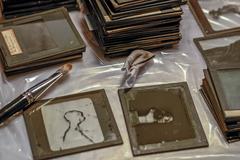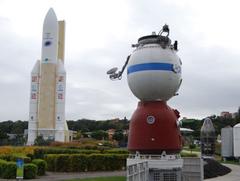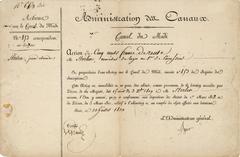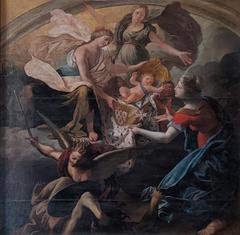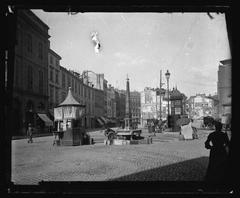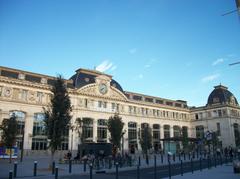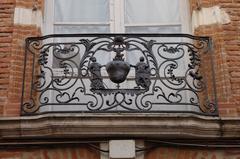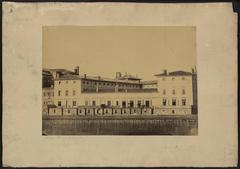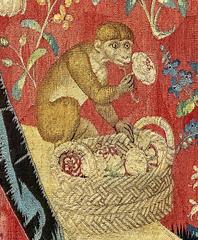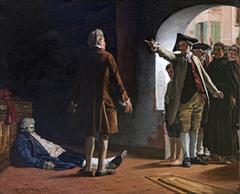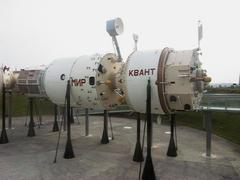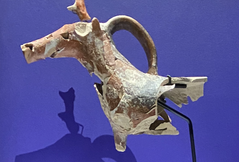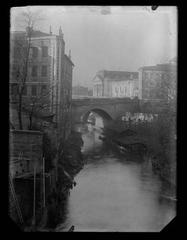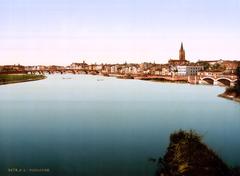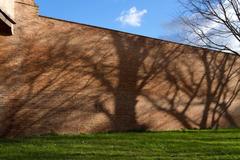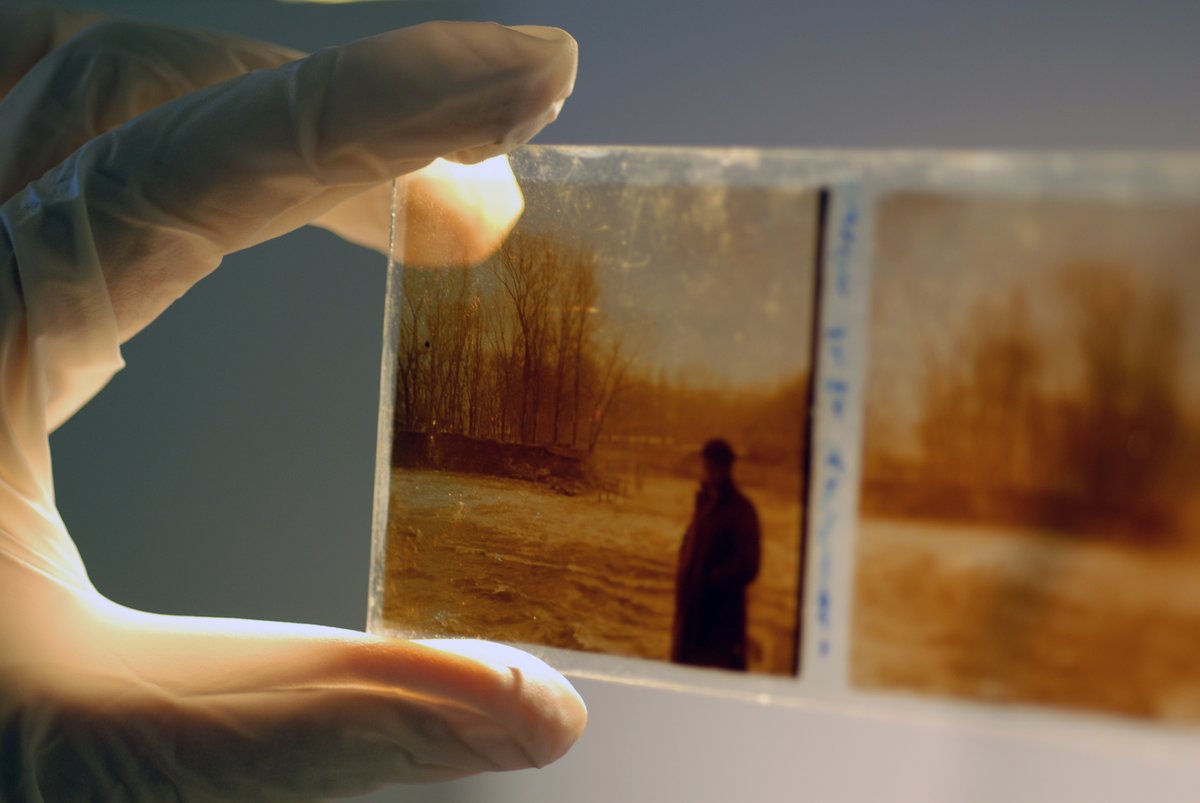
Muséum de Toulouse Visiting Hours, Tickets, and Nearby Attractions in Toulouse
Date: 14/06/2025
Introduction
The Muséum de Toulouse stands as one of France’s oldest and most distinguished natural history museums, offering a vibrant journey through natural sciences, cultural heritage, and scientific discovery. Established in 1796, the museum houses approximately 2.5 million specimens across disciplines such as anthropology, botany, geology, paleontology, and zoology. Its commitment to sustainability, inclusivity, and public engagement makes it a cornerstone of Toulouse’s cultural and scientific landscape (recolnat.org).
This guide provides comprehensive information on visiting hours, ticketing, accessibility, exhibitions, and travel tips, as well as highlights of nearby Toulouse attractions.
Contents
- History and Development
- Collections and Scientific Significance
- Museum Architecture and Renovation
- Visitor Information (Location, Hours, Tickets, Accessibility)
- Exhibitions (Permanent and Temporary)
- Gardens and Outdoor Spaces
- Educational Programs and Activities
- Nearby Attractions in Toulouse
- Frequently Asked Questions (FAQ)
- Resources and Planning Tools
- Conclusion
History and Development
Founded through the vision of local naturalist Philippe Picot de Lapeyrouse, the Muséum de Toulouse began as a hub for the study and preservation of natural sciences (recolnat.org). The museum officially opened its doors in 1865, quickly becoming a significant cultural institution in the region. Over time, its collections expanded to include notable artifacts in botany, geology, paleontology, and zoology, supporting both research and public education.
Collections and Scientific Significance
Today, the Muséum de Toulouse boasts:
- Anthropology: Human remains, mummies, and reconstructions.
- Botany: Remarkable herbaria and seed libraries.
- Geology: Minerals and meteorites from the Pyrenees and beyond.
- Paleontology: Exceptional fossil collections, including key specimens from regional sites.
- Zoology: Extensive animal specimens from local and global fauna.
These collections underpin research and conservation efforts while providing a foundation for engaging, educational exhibitions (ecsite.eu; budgetyourtrip.com).
Museum Architecture and Renovation
The 2008 Redesign
A major renovation completed in 2008 transformed the Muséum de Toulouse into a modern, sustainable, and interactive space. The redesign prioritized:
- Environmental Sustainability: Meeting High Environmental Quality (HEQ) standards.
- Accessibility: Enhanced visitor flow and facilities for reduced-mobility guests.
- Interactivity: Engaging multimedia and tactile displays throughout.
The museum’s philosophy emphasizes humanity’s place within the natural world and the importance of ecological balance (ecsite.eu).
Visitor Information
Location & Access
- Address: 35 Allée Jules Guesde, 31400 Toulouse
- Neighborhood: Busca-Montplaisir, adjacent to Jardin des Plantes
- Public Transport: Metro Line B (Carmes or Palais de Justice), tram T1 (Palais de Justice), and several bus lines (museum official site).
- Parking: Limited; public transport recommended.
Visiting Hours
- Open: Tuesday to Sunday, 10:00–18:00
- Closed: Mondays, January 1, May 1, and December 25
- Free Entry: First Sunday of each month (Toulouse Tourism)
Tickets & Admission
- Standard Admission: Around €9 for adults; reduced rates for students, seniors, and large families. Children under 6 enter free.
- Pass Holders: Free or reduced entry with Toulouse Tourism Pass, Explorers Pass, or Toulouse+ Pass.
- Special Exhibitions: May incur additional fees; check event details.
- Purchase: Online advance booking recommended (museum official site; billetterie.museum.toulouse-metropole.fr)
Facilities & Accessibility
- Cloakroom & Lockers: Available; note Vigipirate restrictions—large bags, suitcases, and scooters prohibited.
- Restrooms: Accessible and available on all floors.
- Baby Facilities: Family-friendly amenities.
- Wi-Fi: Free throughout the museum.
- Mobility: Fully wheelchair accessible with lifts and ramps.
- Assistance: Trained staff; guide dogs welcome.
- Languages: Exhibits in French, English, and Spanish; multilingual audio guides available.
Exhibitions
Permanent Exhibitions
Spanning over 3,000 m², the permanent galleries are organized around five major themes (whichmuseum.com):
- Planet Earth: Geology, solar system, and Earth’s formation.
- The Living World: Biodiversity, ecosystems, and species classification.
- Life Through Time: Paleontology and evolutionary biology.
- Human Needs and Adaptations: Human evolution and cultural development.
- Human Impact & Future: Environmental challenges and sustainability.
Signature Highlights
- Punch: Taxidermied elephant from the Pinder Circus.
- Quetzalcoatlus Skeleton: One of the largest flying reptiles.
- Twiga: 5.4-meter Abyssinian giraffe on display.
- New Interactive Biodiversity Space: Opened in April 2024 (metropole.toulouse.fr).
Temporary Exhibitions (2025)
- “Géants” (Giants): Until June 29, 2025. Life-sized reconstructions and interactive paleontology (billetterie.museum.toulouse-metropole.fr; evous.fr).
- “Fouilles paléontologiques & Paysages photographiques”: Until January 31, 2025. Outdoor photographic exhibition.
- “Les Domestiques”: From October 2025. Exploring domestication and human-animal relationships.
Recent Notable Exhibitions
- “Mummies, Preserved Bodies, Eternal Bodies” and “Trees, a Living Exploration” (museum.toulouse-metropole.fr).
Outdoor/Garden Exhibitions
- “Le Sentier oublié”: Biodiversity tours.
- “Les Potagers du monde”: Global food plants and sustainability (billetterie.museum.toulouse-metropole.fr).
Gardens and Outdoor Spaces
- Jardin Botanique Henri Gaussen: Features over 700 plant species and thematic gardens (ecsite.eu).
- Jardins du Muséum at Borderouge: Outdoor workshops and biodiversity trails (metropole.toulouse.fr).
Educational Programs and Activities
The Muséum de Toulouse offers:
- Workshops: Textile dyeing, paleontology, natural sciences.
- Guided Tours: Permanent and temporary exhibitions.
- Family Activities: Interactive learning for children and adults.
- School Visits: Advance booking required (billetterie.museum.toulouse-metropole.fr).
Nearby Attractions in Toulouse
Enhance your visit by exploring:
- Capitole de Toulouse
- Basilique Saint-Sernin
- Jardin des Plantes
- Garonne River Banks
- Musée des Augustins and Les Abattoirs
Most are within walking distance or a short public transport ride from the museum (Toulouse Tourism).
Frequently Asked Questions (FAQ)
Q: What are the Muséum de Toulouse visiting hours?
A: Tuesday to Sunday, 10:00–18:00; closed Mondays and select holidays.
Q: How can I buy tickets?
A: Online at the official ticketing site or on-site; advance booking is recommended.
Q: Is the museum accessible for visitors with disabilities?
A: Yes, with ramps, lifts, adapted restrooms, and trained staff.
Q: Are guided tours available?
A: Yes, for individuals, families, and groups; advance booking advised.
Q: Are strollers and large bags allowed?
A: Strollers are restricted in some exhibition areas; large bags and suitcases are not permitted.
Q: Is admission free on certain days?
A: Yes, on the first Sunday of each month.
Q: Is there parking?
A: Limited; public transport is preferable.
Q: Are pets allowed?
A: Only service animals are allowed.
Resources and Planning Tools
- Official Muséum de Toulouse Website
- Official Ticketing Platform
- Museum Exhibitions Information
- Toulouse Tourism Info
- Public Transport Routes
For images, virtual tours, and interactive maps, visit the museum’s digital resources. Download the Audiala app for personalized guides and the latest updates.
Conclusion
The Muséum de Toulouse is a premier cultural and scientific destination, offering rich collections, dynamic exhibitions, and engaging educational programs in a welcoming, sustainable environment. Plan your visit by checking up-to-date hours and ticket information, explore both the museum and its lush gardens, and make time for nearby Toulouse historical sites.
Stay connected through the museum’s official channels and the Audiala app to make the most of your experience and discover why the Muséum de Toulouse is a highlight for both locals and visitors.


